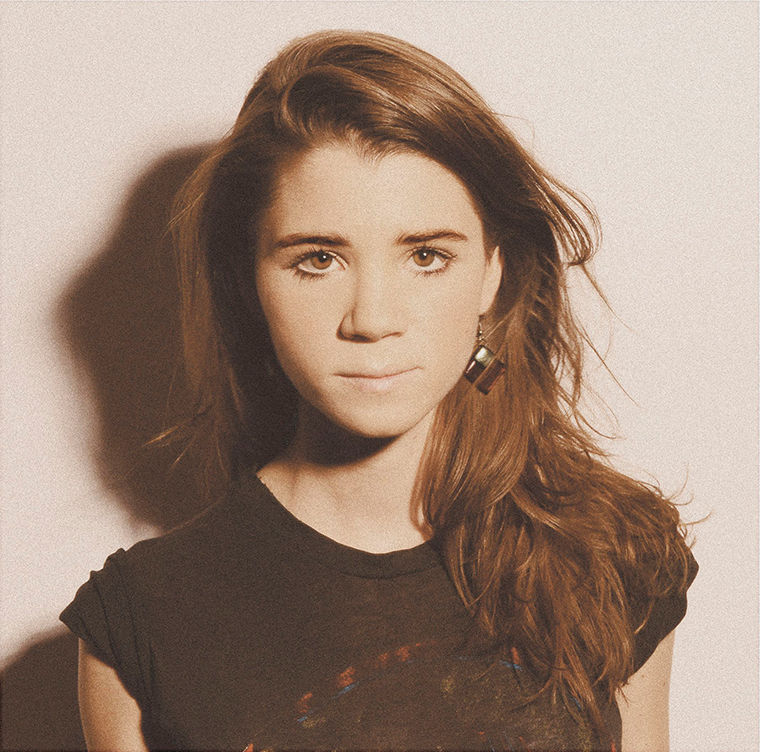Lady Lamb’s latest album turns dreams into personal music
Aly Spaltro—who shortened her stage name from Lady Lamb the Beekeeper to Lady Lamb earlier this year—received critical acclaim for her latest album release, After.
April 27, 2015
As a teenager growing up in Maine, Aly Spaltro worked the late shift at a video store so she could record her music in the basement. Better known as Lady Lamb, Spaltro preferred the seclusion of a video store basement as her music and lyrics possess a similar intimate quality.
Lady Lamb—formerly known as Lady Lamb the Beekeeper—goes one step further with her latest album, After. The record is Lady Lamb’s first label release, which she produced with producer and friend Nadim Issa, whom she met after moving to Brooklyn. After receiving acclaim from publications such as Rolling Stone and Paste, Lady Lamb is ready to take her rightful place in the spotlight. She is currently touring and playing sold-out shows across the country, including a sold-out May 6 show at Schubas Tavern, 3159 N. Southport Ave.
The Chronicle spoke with Lady Lamb about her name, getting signed to a label and touring.
THE CHRONICLE: How did you come up with the name Lady Lamb?
LADY LAMB: When I was 18, I kept a notebook by my bed. I would write down lyrics in the middle of the night and it was just something written in my notebook when I woke up one morning. It was right around the time I had some recordings that I wanted to share, so I chose [it] as my moniker.
You recently shortened your name to Lady Lamb. What motivated you to make that change?
I just felt a little disconnected to the full name. It’s been a long time, and I was really young when I came up with it. Over time, I felt more connected to just the front half [of the name], so I chose to abbreviate.
Could you talk a little bit about your early songwriting?
I worked the closing shift at this little store in my hometown and I would throw my gear there and record, practice and write late at night into the morning. I worked there for four years and I basically made music the entire time.
What has the working relationship been like with your producer, Nadim Issa, through the years?
We did a cover together that was going to come out on this New York blog after I moved there in 2012. I went in and did the cover with him and we really hit it off. A couple months later, I asked him if he’d want to work on [Ripely Pine] with me. Now, this new one [After] we produced together in the studio again. We just have a great partnership. He really knows what I’m going for and he helps me get to that place.
What has it been like being part of a record label rather than self-releasing your work?
It’s really great. It’s a small team that is really dedicated, and they have a lot of time to commit to each artist. There is very personal attention. I’m really happy with them.
If you were not able to make it as a musician, what other career would you like to pursue?
I would probably want to be doing something with film—primarily editing. I really enjoy editing. I feel like maybe that’s something that I might have gotten into at some point.
You were recently featured in Rolling Stone Magazine and have gotten more publicity for your latest release, After. What has the boost in popularity been like?
It’s been a steady progression since the last [album], so I can’t complain. People are starting to catch on, which I really appreciate. It’s been a really steady build for me, but I’ve definitely gotten more people on board—more people are hearing the music for the first time. I’m really happy with the progression.
You are currently on tour and will be stopping in Chicago on May 6. What has it been like playing for fans who know all of your songs?
It’s been really good. It’s surprising every night to see a lot of people singing along and seeing everybody looking really excited and happy. A lot of the shows have sold out. I couldn’t ask for much more.








